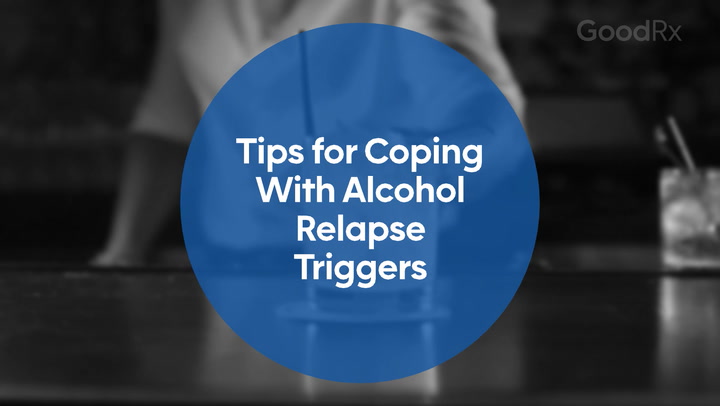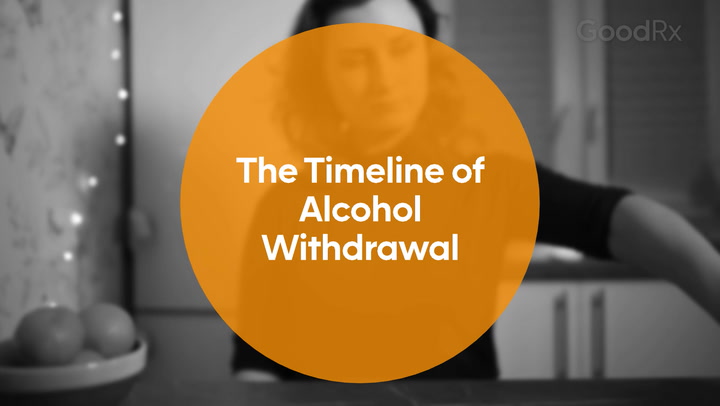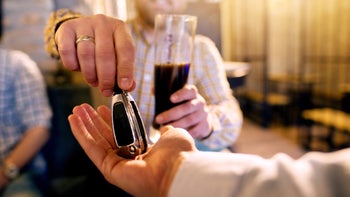
How Does Alcoholics Anonymous (AA) Help People Stop Drinking?
Key takeaways:
Alcoholics Anonymous — mostly known by its abbreviation, AA — is a recovery support group where people dealing with alcohol use disorder can come together to seek support and guidance.
Research has found that attending AA can often be more effective than therapy for addiction treatment. The more meetings you attend, the more effective AA tends to be.
AA works by creating a strong social support network in which members give emotional support along with practical tips.
Table of contents

Alcoholics Anonymous, or AA, is a self-help group that was started in 1935. The founders, known as Bill W. and Dr. Bob, both struggled with alcoholism — or alcohol use disorder, as it’s now called. They founded AA as a group for people with alcohol addiction to provide support to one another.
Since then, AA has grown substantially. It’s now available in over 180 countries around the world. Millions of people have benefited from AA by achieving sobriety and changing the way they live. Read on to learn more about how and why AA is successful and how you can find a self-help group near you.
How Alcoholics Anonymous (AA) works
Alcoholics Anonymous (AA) works by providing members with a strong social support network. AA seems to be especially helpful because members provide emotional support along with practical tips to help maintain sobriety. Studies have found that AA works as well or better than other forms of treatment, like psychotherapy or cognitive behavioral therapy.
Even though AA works by using groups to help recovery, it’s different from group therapy. Alcoholics Anonymous is a fellowship of people who come together to solve their drinking problem. Membership is free, anonymous, and open to anyone who has a desire to stop drinking. Groups are led by a peer in recovery, unlike therapy groups that are led by trained professionals.
Though AA has religious roots, it doesn’t bill itself as a religious organization. AA encourages members to have their own definition of God or a spiritual power, or to turn to any force outside themselves. This power can even be the program itself, one’s professional treatment team, or the science behind addiction.
A new member of AA is encouraged to attend meetings often and connect with other group members. Finding a sponsor, who is another person with at least one year of recovery time, is recommended. Sponsors provide support and help keep members on track for continued abstinence from alcohol.
AA is founded on the 12 steps, which are guiding principles for recovery. In AA, following the 12 steps is the key to living a life of sobriety and recovery.
Alcohol and health: Long-term alcohol use can lead to serious health issues, like liver disease, mood problems, and increased risk for cancer.
Medications for alcohol-use disorder: Learn about medication-assisted treatment (MAT) to help reduce withdrawal symptoms and lower cravings for alcohol.
Guide to recovery: You have many options when it comes to treatment for alcohol addiction. Whether you’re looking for outpatient or inpatient options, learn about different paths to recovery.
The 12 principles and 12 steps of AA
Each one of the 12 steps represents a different “tradition” or principle. Members are encouraged to study, work through, and live the 12 steps and their principles.
Below are the 12 steps and 12 principles of AA, as detailed in the book, Twelve Steps and Twelve Traditions.
1. Honesty
“We admitted we were powerless over alcohol — that our lives had become unmanageable.”
2. Hope
“Came to believe that a Power greater than ourselves could restore us to sanity.”
3. Faith
“Made a decision to turn our will and our lives over to the care of God as we understood Him.”
4. Courage
“Made a searching and fearless moral inventory of ourselves.”
5. Integrity
“Admitted to God, to ourselves, and to another human being the exact nature of our wrongs.”
6. Willingness
“We're entirely ready to have God remove all these defects of character.”
7. Humility
“Humbly asked Him to remove our shortcomings.”
8. Love
“Made a list of all persons we had harmed, and became willing to make amends to them all.”
9. Discipline
“Made direct amends to such people wherever possible, except when to do so would injure them or others.”
10. Perseverance
“Continued to take personal inventory and when we were wrong promptly admitted it.”
11. Spirituality
“Sought through prayer and meditation to improve our conscious contact with God as we understood Him, praying only for knowledge of His will for us and the power to carry that out.”
12. Service
“Having had a spiritual awakening as the result of these steps, we tried to carry this message to alcoholics, and to practice these principles in all our affairs.”
What makes Alcoholics Anonymous (AA) different from other addiction support groups?
AA is the most widely attended addiction self-help group. Other 12-step groups like Narcotics Anonymous (NA) are also available for people suffering from any drug addiction, including alcohol. 12-step groups all share a similar philosophy on addiction and emphasize the importance of peer support. There are also several groups — like SMART Recovery or LifeRing Secular Recovery — that take a different view and approach to recovery from addiction.
AA works a little differently than other groups because it:
Views addiction as a chronic disease
Includes a spiritual component
Focuses only on alcohol
Places a strong emphasis on helping others
Uses peer support through sponsors and connecting with other group members
What is the success rate of AA?
The Alcoholics Anonymous success rate is better than the success rate of therapy, according to multiple studies. But it’s hard to pin down exactly how successful it is. That’s because so many factors can influence the success rate. For example, one older study found that people who did AA actually had worse outcomes than people who received no treatment, but the study included many people who were forced to go to AA meetings.
Some addiction specialists estimate that the success rate of AA is 8% to 12%. But a person’s success with the program depends on how they use it. People who attend more AA meetings have a better success rate. One study found that for people who had attended at least 27 weeks of AA meetings in any given year, 70% were abstinent from alcohol at the 16-year follow-up.
AA may have other benefits beyond helping a person maintain sobriety. For some people, involvement in AA improves their well-being, gives their life a greater sense of meaning, and helps them develop better relationships.
How to find an Alcoholics Anonymous (AA) group near you for alcohol use disorder
To find an AA meeting near you, you can:
Search AA’s website for your local chapter. Once you locate your local chapter, you can see meetings in your area and contact information for the chapter.
Call the Substance Abuse and Mental Health Administration hotline for information to find out about meetings near you.
Download the AA Meeting Guide app through the Apple Store or Google Play.
For a list of virtual meetings, search the Online Intergroup of Alcoholics Anonymous.
How can you help someone who is going through AA?
If a loved one is going through AA, there are many ways that you can help support their recovery. Here are some ways to help:
Be encouraging. Praise them for taking the step to help themselves and ask them directly how you can help support them.
Learn more about AA. Having knowledge of AA can help you connect with your loved one and will give you insight into what they’re getting out of meetings. You can read the AA Big Book and find literature online.
Offer to attend an open meeting together. Open meetings are available for anyone who would like to attend, and closed meetings are reserved for AA members. To show your support, you might see if your loved one would like you to go. If they say “no,” respect their decision. They may feel more comfortable going on their own.
Supporting a loved one can be difficult. You may find yourself struggling with how to help while also caring for your own needs. Seeking your own therapy and support may be beneficial.
Al-Anon is a support group available for friends and family who have a loved one with an addiction. Like AA, the group is free, peer-led, and based on a version of the 12 steps. Attending Al-Anon while a loved one is in AA can help you both cope with addiction and learn how to have a healthier and more satisfying relationship.
Frequently asked questions
Yes, you can attend AA meetings online. Online meetings for AA became more common during the COVID-19 pandemic. Though most meetings occur in person, having a virtual option can be convenient and more accessible for some. This can be especially helpful if someone had their driver’s license taken away because of driving under the influence, for example.
To find out about AA meetings near you, you can call the Substance Abuse and Mental Health Administration (SAMHA) hotline at any time at 1-800-662-4357. They offer a free, confidential treatment and referral service that’s always available. You can also visit the AA website to find your local AA resource.
To know if you or someone you love may need help for alcohol use, you can ask four simple questions based on the CAGE acronym:
C: Have you ever felt you need to cut down on your drinking?
A: Have you ever felt annoyed by people telling you that you should drink less?
G: Have you ever felt bad or guilty about your drinking?
E: Have you ever had a drink first thing in the morning to steady your nerves or get rid of a hangover (called an eye opener)?
There are many 12-step groups that are similar to AA but focus on other specific addictions besides alcohol. These groups include:
There are also other addiction self-help groups that offer a different approach to addiction and recovery including:
The bottom line
AA offers many benefits to members who are actively engaged in the program. AA provides more than just tools for sobriety. It’s a new way of living and an opportunity to develop connections with oneself, a higher power, and the community. While AA can be a helpful part of your recovery plan, it isn’t always enough for treatment. If you’re struggling with your drinking, you may benefit from attending AA while also seeking professional help.
Why trust our experts?



References
Alcoholics Anonymous. (n.d.). Find AA near you.
Alcoholics Anonymous. (n.d.). The big book.
Alcoholics Anonymous. (n.d.). The start and growth of AA.
Alcoholics Anonymous. (n.d.). What to expect at an AA meeting.
Alcoholics Anonymous. (2018). A newcomer asks.
Alcoholics Anonymous. (2021). Twelve steps and twelve traditions. Alcoholics Anonymous World Services.
Alcoholics Anonymous. (2022). Questions and answers on sponsorship.
Alcoholics Anonymous. (2022). This is AA: An introduction to the AA recovery program.
American Addiction Centers. (2024). CAGE questionnaire (4 questions to screen for alcoholism).
Erickson, M. (2020). Alcoholics Anonymous most effective path to alcohol abstinence. Stanford Medicine News Center.
Humphreys, K., et al. (2004). Self-help organizations for alcohol and drug problems: Toward evidence-based practice and policy. Journal of Substance Abuse Treatment.
Kaskutas L. A. (2009). Alcoholics anonymous effectiveness: Faith meets science. Journal of Addictive Diseases.
Kass, N. (2015). The philosophies and practices of Alcoholics Anonymous from a psychodynamic perspective. University of Pennsylvania, Doctorate in Social Work (DSW) Dissertations.
Kelly, J. F., et al. (2020). Alcoholics Anonymous and other 12‐step programs for alcohol use disorder. Cochrane Database of Systematic Reviews.
Kownacki, R. J., et al. (1999). Does Alcoholics Anonymous work? The results from a meta-analysis of controlled experiments. Substance Use & Misuse.
Soledad House. (n.d.). Can I attend Alcoholic Anonymous meetings online?
Substance Abuse and Mental Health Services Administration (2023). SAMHSA’s National Helpline
Wagener, D. (2024). Alcoholics Anonymous: The 12 steps of AA & success rates. American Addiction Centers.
Wnuk, M. (2022). The beneficial role of involvement in Alcoholics Anonymous for existential and subjective well-being of alcohol-dependent individuals? The model verification. International Journal of Environmental Research and Public Health.
If you or someone you know struggles with substance use, help is available. Call SAMHSA’s National Helpline at 1-800-662-4357 to learn about resources in your area.

























